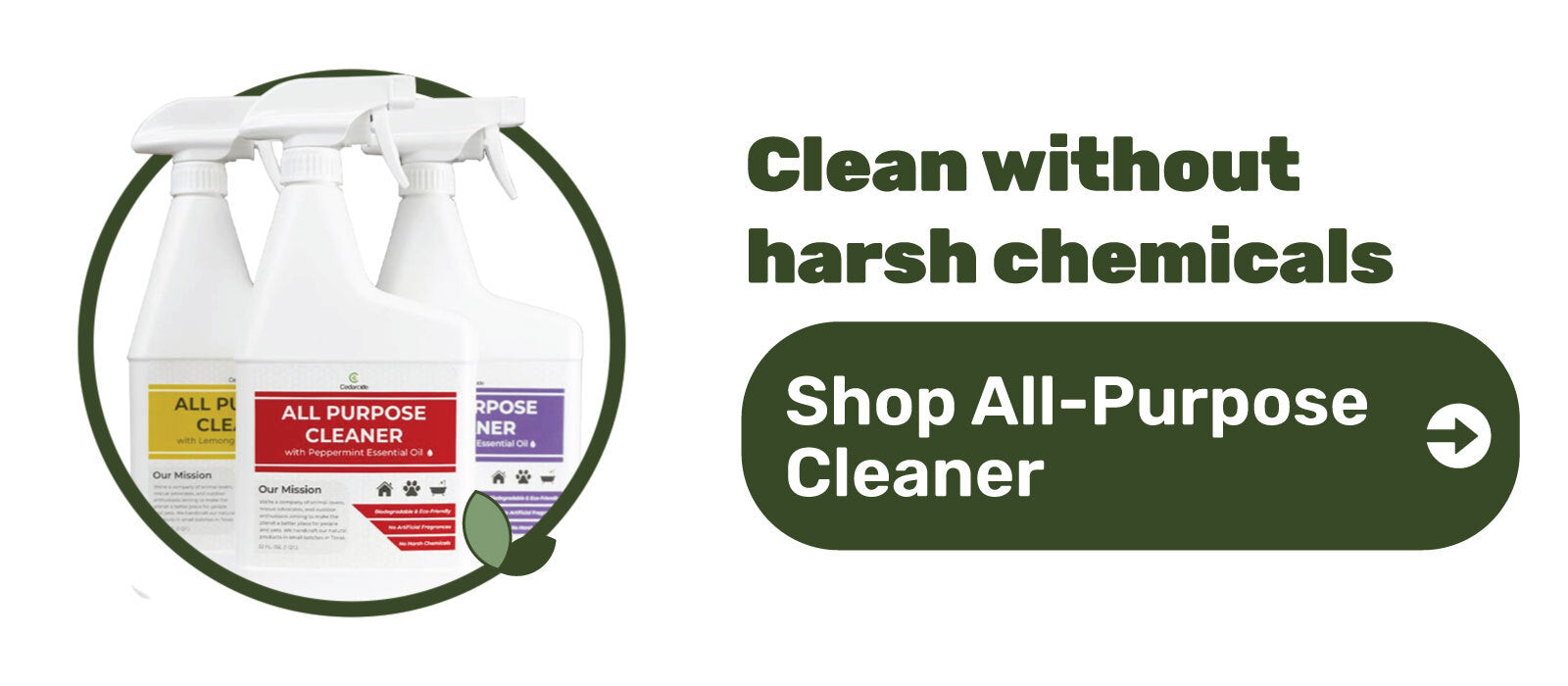
As pet parents we go to great lengths to keep our pets safe. We seek healthy food options, keep up with vet visits, and never let our fur baes eat dangerous foods. But did you know most households are filled with chemicals that threaten the health of our pets? From cleaners to candles, countless products contaminate our homes with toxins. Because of their small size and close proximity to the ground, pets are far more vulnerable to these toxins and therefore more likely to suffer their negative health effects. For the safety or your cat or pup, here are 5 household products every pet parent should avoid.
1. Toxic Flea & Tick Products
Traditional flea and tick products can seriously threaten your pet’s health, not to mention your own. Whether collars, pills or repellent sprays, traditional pest control products for pets often contain toxic ingredients—including fipronil, imidacloprid, and pyrethroids. Organ damage, seizures, nervous system damage and even death are all associated with these chemicals. Choosing a pet-safe, non-toxic insect repellent is one way to lessen your animal and family’s exposure to chemical-based pesticides. Remember: Always consult a veterinarian when planning your pet’s pest control regimen.
2. Household Cleaners
Indoor air pollution is a common issue in American homes. Whether inhaled, ingested or absorbed through the skin, common household cleaners are largely at fault. Bleach, ammonia, chlorine, formaldehyde and other toxic chemicals feature prominently in these cleaning solutions, including laundry detergents. Cancer, anemia and organ damage are just some of the known health complications associated with these ingredients and their noxious fumes. To avoid exposure, consider switching to natural cleaning alternatives and check out these 5 Natural Tips for Spring Cleaning.
3. Air Fresheners and Scented Candles
From plug-ins and incense to sprays and scented candles, air fresheners are surprisingly toxic. Long term health effects such as respiratory complications, heart disease and cancer have been linked to the harmful chemicals contained within these products. Formaldehyde, heavy metals, and VOCs (volatile organic compounds) like ethanol, acetate and acetone are the primary culprits. Studies have shown that in some respects these ingredients can be even more harmful than cigarette smoke.
Considering these chemicals can accumulate in the body over time and usually end up collecting on the floor, pets and children are most at risk. To ensure your pet lives a long and healthy life, we strongly encourage seeking natural alternatives to household air fresheners.
4. Fertilizers, Herbicides and Outdoor Pesticides
Traditionally formulated pesticides, herbicides and fertilizers can spell trouble for your dog or cat. Dogs have been known to ingest fertilizers, which commonly contain toxic mixtures of nitrogen, phosphorus and other chemicals. Pest control sprays and herbicides are arguably even worse. Lying on the lawn, paw-licking or consuming grass are all it takes to receive harmful exposure. Bottom line: Don’t put anything on your lawn or garden until researching its potential impact on your pet’s health. To prevent life-altering side effects and possibly even the loss of your pet, go with a non-toxic lawn and garden alternatives instead.
5. Indoor Insecticides and Rodenticides
The same ingredients that make indoor pesticides lethal to insects and rodents make them extremely dangerous for your pet, too. Avoid illness, a vet visit, or potentially serious health consequences by using only pet-safe pest control products within the home. Plant-based pesticides, DIY essential oil mixtures, and diatomaceous earth are viable substitutes. Adopting basic pest prevention practices will also decrease pest activity.



